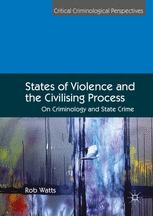

Most ebook files are in PDF format, so you can easily read them using various software such as Foxit Reader or directly on the Google Chrome browser.
Some ebook files are released by publishers in other formats such as .awz, .mobi, .epub, .fb2, etc. You may need to install specific software to read these formats on mobile/PC, such as Calibre.
Please read the tutorial at this link: https://ebookbell.com/faq
We offer FREE conversion to the popular formats you request; however, this may take some time. Therefore, right after payment, please email us, and we will try to provide the service as quickly as possible.
For some exceptional file formats or broken links (if any), please refrain from opening any disputes. Instead, email us first, and we will try to assist within a maximum of 6 hours.
EbookBell Team

4.0
76 reviewsThis book offers a distinctive and novel approach to state-sponsored violence, one of the major problems facing humanity in the previous and now the twenty-first century. It addresses the question: how is it possible that large numbers of ordinary men and women are able to do the killing, torturing and violence that defines crimes against humanity? In his striking analysis, Rob Watts shows how and why states, of all political persuasions, engage in crimes against humanity, including: genocide, homicide, torture, kidnapping, illegal surveillance and detention.
This book advances a new interpretive frame. It argues against the ‘civilizing process’ model, showing how both states and social sciences like sociology and criminology have been complicit in splitting 'the social' from 'the ethical' while accepting too complacently that modern states are the exemplars of morality and rationality. The book makes the case that it is possible to bring together in the one interpretative frame, our understanding of social action involving personal motivation and ethical responsibility and patterns of collective social action operating in terms of the agencies of ‘the State’. Rob Watts identifies and charts the pathways of action and ‘practical’ (i.e. ethical) judgements which the perpetrators of these crimes against humanity constructed for themselves to make sense of what they were doing.
At once challenging and highly accessible, the book reveals the policy-making processes that produce state crime as well as showing how ordinary people do the state’s dirty work.